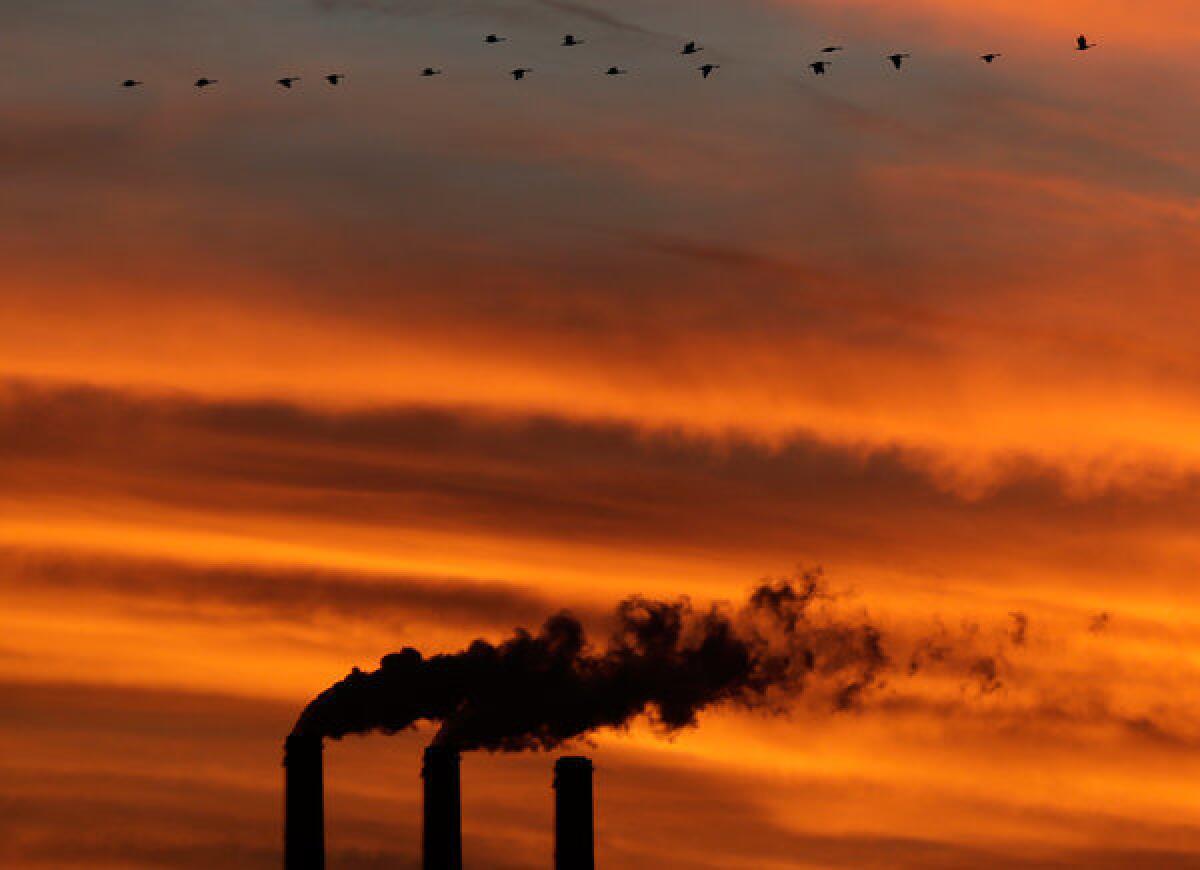Editorial: The world needed a bang from the Madrid climate meeting. It got a whimper instead

- Share via
An international meeting in Madrid that was supposed to finalize rules arising from the groundbreaking 2015 Paris agreement on climate change went into extra time over the weekend — two days longer than scheduled, in fact. But the delegates may as well have gone home early, given how disappointingly little was accomplished.
It’s tempting to conclude that the United Nations is better at telling the governments of the world that they need to act quickly on climate change than it is at actually getting them to do so.
But in truth the blame belongs primarily to the national leaders themselves, whose delegates failed miserably during the two-week Conference of the Parties to craft rules on how the Paris agreement would be implemented, including designing a transparent global carbon trading system and firming up a process for getting financial aid to smaller, more impoverished nations already beset by the effects of global warming. As U.N Secretary General António Guterres said, the world “lost an important opportunity” to chart a different future, setting the stage for an even rockier meeting next year in Glasgow, Scotland, at which the international community is supposed to set still more ambitious goals than were included in the Paris agreement.
Shouldn’t it be clear by now that this is no time for global leaders to dawdle? It’s true that many countries are struggling to meet the goals they set under the 2015 Paris agreement to limit greenhouse gas emissions and avoid the worst impacts of global warming. Indeed, although the pact called for holding warming to “well below” 2 degrees Celsius above preindustrial levels, the world has already warmed by 1 degree and is now expected to warm by 3 degrees or more — disastrously high — by the end of the century even under the current Paris commitments.
So the world knows it needs to do more, yet political leaders are doing less, a point made in raucous terms by protesters inside the Madrid meeting hall and in the streets outside.
The conference and the protests spotlighted a couple of significant friction points. Attendees said smaller nations that stand to lose the most from rising seas and changing climates pushed for aggressive measures while larger economies balked. Helen Mountford of the World Resources Institute, an environmental advocacy group, lamented the lack of progress. “Instead of leading the charge for more ambition, most of the large emitters were missing in action or obstructive,” she said.
That, of course, includes the United States. Last month, President Trump formally notified the U.N. that he is pulling our country out of the agreement effective in November 2020, leaving the United States as the only nation in the world not to be a party to it. Notably, the U.S. has for generations fueled its economy through the burning of oil, coal and gas, helping create one of the richest societies in human history. We and other industrialized nations bear significant responsibility for trying to undo the harm we have caused. Yet without U.S. leadership, it becomes increasingly difficult for world economies to forge and adopt the critically necessary policies, including ending the production of energy from burning fossil fuels, to limit the worst effects of global warming.
This is not a good time for failure, yet we have it. The Swedish climate activist Greta Thunberg has become the face of the next generation, and Chilean Environment Minister Carolina Schmidt, who co-chaired the conference, referred directly to the responsibility today’s leaders have to the young people of the world: “The consensus is still not there to increase ambition to the levels that we need,” she said. “The new generations expect more from us.”
Maybe that’s part of the problem, though. Climate change arising from global warming is not just something we’re foisting off on our children and grandchildren, though it is indeed that. In fact, its effects are already being felt. The current generation also expects more from global leaders, and must insist on it. The more time we take to change how we produce and consume energy globally, the more difficult it will be — and more dreadful will be the consequences. The protests in Madrid were energetic and clamorous, but apparently not sufficiently so to goad action. Clearly more pressure is needed from all generations to compel political leaders to act with a sense of urgency before we become a world of boiled frogs.
More to Read
A cure for the common opinion
Get thought-provoking perspectives with our weekly newsletter.
You may occasionally receive promotional content from the Los Angeles Times.








